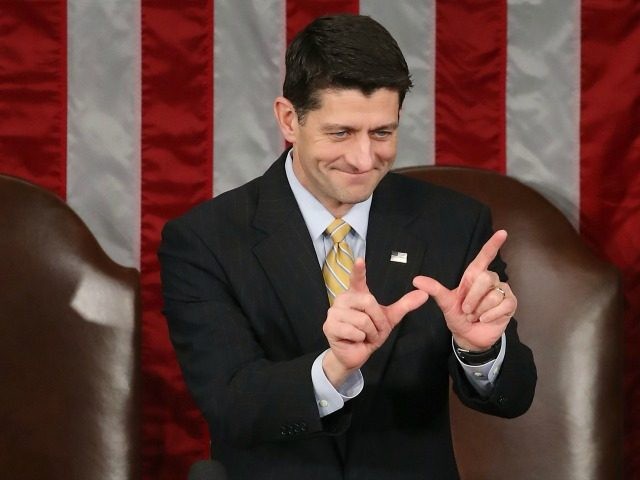The House Rules Committee published its proposed $1 trillion budget at 12:47 a.m. on Monday, a massive 1,665-page plan that is 400 pages longer than the average bible.
Not only are many of President Donald Trump’s budget priorities missing from the plan, but since 2009 Republicans have promised a 72-hour “read the bill” window to allow Americans to see legislation before it is voted on — a biblical task for a bill that could as early as Wednesday face an up or down vote.
The “Consolidated Appropriations Act, 2017″ will fund the federal government through the end of September, another kick-the-can down-the-road budget that does not pay for a wall on the U.S. southern border but does fund Planned Parenthood, the nation’s largest abortion provider.
The budget does include an increase in military spending ($12.5 billion) and border security ($1.5 billion), although the latter prohibits any spending on security except for technological advances and repairs to existing infrastructure, unnamed congressional aides told the Washington Post.
But while the military spending and border security represent what Trump and Republicans wanted, the Democrats, who are now the minority in both the Senate and House, got what they wanted, including $295 million to fund Puerto Rico’s Medicaid program and $100 million funding for opioid addiction.
“Schumer and House Minority Leader Nancy Pelosi (D-Calif.) boasted that they were able to force Republicans to withdraw more than 160 unrelated policy measures, known as riders, including those that would have cut environmental funding and scaled back financial regulations for Wall Street,” the Post reported.
“Among the bipartisan victories is $407 million in wildfire relief for western states and a decision to permanently extend a program that provides health-care coverage for coal miners,” the Post reported.
According to CNN the budget also has no funding for deportation operations or federal cuts to sanctuary cities and increases National Institute of Health funding by $2 billion as well as renewable energy programs.
Despite the seeming win for Democrats and loss for Trump’s budget priorities, Jennifer Hing, a spokeswoman for House Appropriations Committee Chairman Rodney Frelinghuysen (R-NJ), said the budget plan is a good thing.
“The agreement will move the needle forward on conservative priorities and will ensure that the essential functions of the federal government are maintained,” Hing said.

COMMENTS
Please let us know if you're having issues with commenting.